With the decline of good paying jobs in the private sector, public employment has been particularly important for working-class people. These state and local workers also provide important public services ranging from street cleaning, to home health to emergency services. Such employment opportunities have benefited African-American workers and their families especially.
This is true even as union membership declines overall. The most recent Bureau of Labor Statistics report showed that 10.7% of wage and salary workers belong to unions. Union membership would be even worse if public sector union membership weren’t more than five times higher (at 34%) than the private-sector rate (6.4%). Like other working-class people, union members, including those in the public sector, have seen both the number of jobs and wages decrease dramatically. The situation is about to get worse as the result of Trump’s election, with the refiling of the Friedrichs case and state Right-to-Work (RTW) initiatives. Both Friedrichs and RTW undermine union membership, which reduces the power of union both politically and in the workplace by taking away the dues money that enables unions to advocate for and protect workers.
Union membership is a working-class issue because it helps workers improve their economic condition and helps to alleviate economic inequality. Even non-union workers benefit from unionization as a result of what economists call “wage pull.” What’s more, public-sector union strength helps prevent private-sector wages from falling further, even as public-sector unions are weakened by the decline in private-sector membership.
In January 2016, the Supreme Court of the United States heard the case of Friedrichs v. California Teachers Association, which involved agency fee agreements that cover the costs of union representation without becoming a union member. The Friedrichs case is a direct attack on the right of public sector unions to exist. Without agency fees, many unions will collapse economically. They will have less money for organizing, representing, and lobbying for members.
With death of Supreme Court Justice Antonin Scalia, the court was split four-to–four, affirming a lower court ruling that denied the challenge to the agency fees. This is sure to have influenced Trump’s recent nomination of Neil Gorsuch for the Supreme Court as the conservative justice is likely to be a deciding vote when Friedrich’s is refiled. Already, conservative groups like the RTW Foundation and US Chamber of Commerce are supporting the resurrection of the Friedrichs case, and the New York Times Editorial Board warns that Gorsuch “spells big trouble for public sector labor unions.”
Currently, there are 27 RTW states, including a number that have strong union traditions. Pennsylvania, New Hampshire, Missouri, and Ohio all have RTW proposals in the works. Last week in the US House of Representatives, two Republican legislators introduced national RTW legislation.
The effects of RTW laws, especially in combination with attacks on public-sector bargaining, have been devastating. Since Wisconsin banned most public sector bargaining (ACT 10) and passed RTW legislation, union membership has dropped in both private and public sectors from well above the national average to now well below. Nationally, the Service Employees International Union has announced a 30% budget cut over the next year that will include staff layoffs.
Election results show that 24 of the 26 states that, as of November, had RTW policies voted for Donald Trump, along with six non-RTW states — Pennsylvania, Ohio, Missouri, Alaska, Montana, and Kentucky, which has since passed its own RTW legislation. Conservative organizations like the Allegheny Institute have called the Trump election a “sign that voters have become weary of public sector unions driving government costs and taxes higher than they need to be.” They are urging more state legislatures to pass RTW legislation focused on the public sector.
For many years, public sector wages and benefits were lower than in the private sector. But with deindustrialization, economic restructuring, automation, and the establishment of public-sector collective bargaining, they have finally caught up. In some cases, government jobs are now worth more than private sector jobs, largely because good benefits compensate for lower wages. A 2015 study by the Economic Policy Institute found that while public workers with higher education earn less than similar private-sector workers, they receive better health benefits and pensions. But this applies only in states that don’t have RTW laws, as the EPI concludes:
Only public employees in states with full collective bargaining make as much as their private-sector peers. In partial collective bargaining states, right-to-work states, and states that prohibit collective bargaining, public employees earn lower wages and compensation than comparable private sector employees, and this low compensation may impede state and local governments from recruiting and retaining highly skilled employees for their many professional and public safety occupations.
No wonder, so many private sector employers have supported RTW legislation.
Beyond improving workers’ financial situations, unions also protect workers by articulating and enforcing labor standards involving wages, hours, overtime, and subcontracting, that are increasingly in short supply. This is especially important in low wage working-class jobs in the growing service economy. The National Employment Law Project found that the greatest loss in real wages since the end of the Great Recession has been in low-wage occupations such as in food preparation, janitors and cleaners, personal care aides, home health aides, and maids and housekeeping cleaners. It is in these occupations and sectors where the Bureau of Labor Statistics says the greatest job growth will be through 2022. Perhaps this is most important reason to fight both state and national RTW legislation.
Put differently, we should fight against cases like Friedrichs and RTW legislation on a moral basis. In Kentucky, the Catholic Bishop of Lexington made a strong moral argument against RTW legislation and support for labor unions. Bishop John Stowe said organized labor supports the common good, arguing that “unions need the support of the workers they represent. The falsely named ‘right to work’ legislation proposed does not in fact create new rights to work, but rather strives to limit the effectiveness and power of the unions.” Just like the recent wave of marches and growing protests that are being framed in moral terms, fighting RTW legislation is a moral imperative.

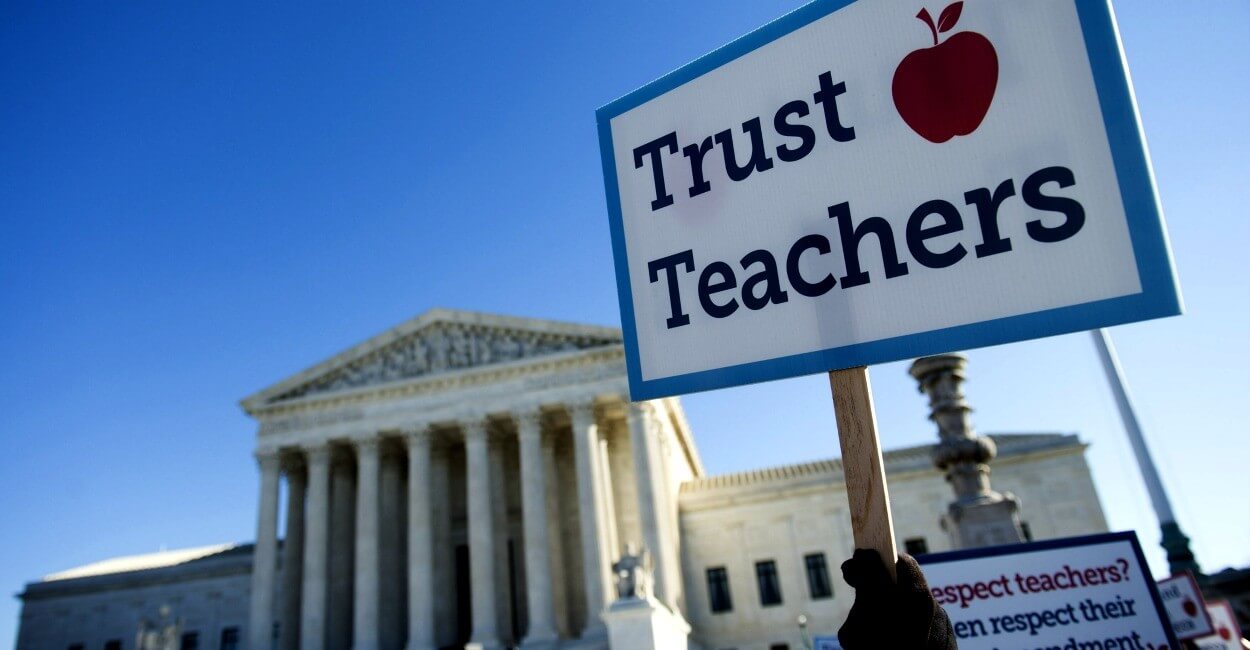

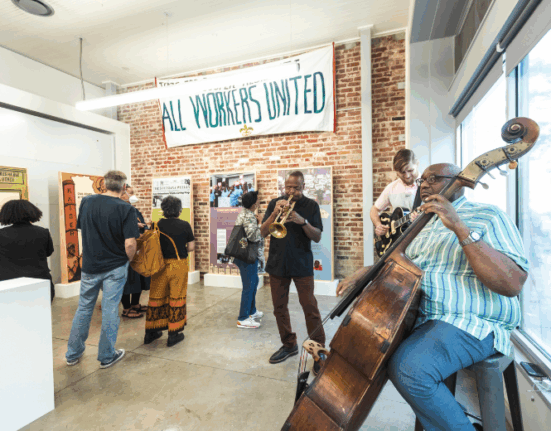
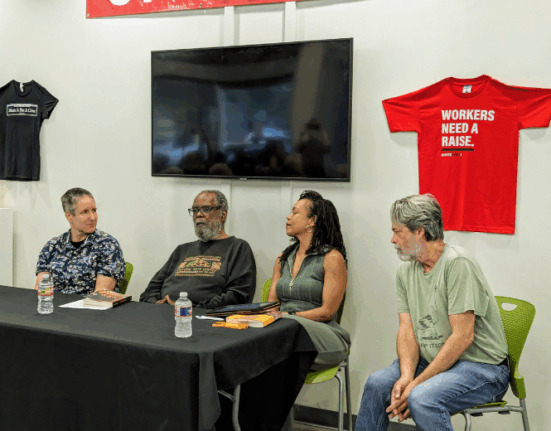

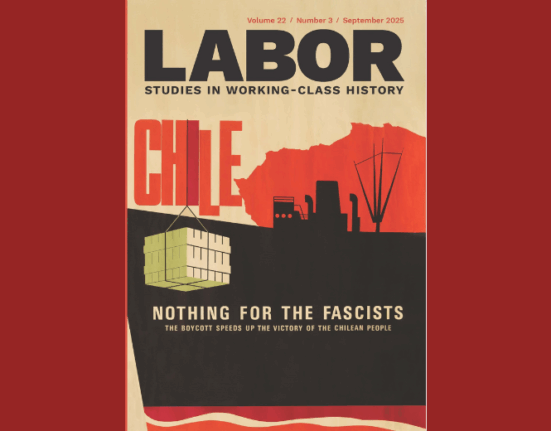
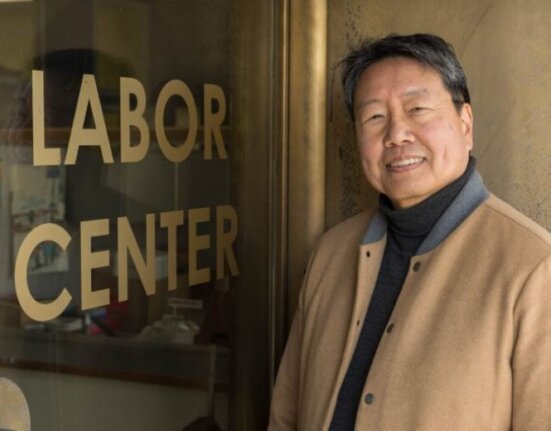
1 Comment
Comments are closed.